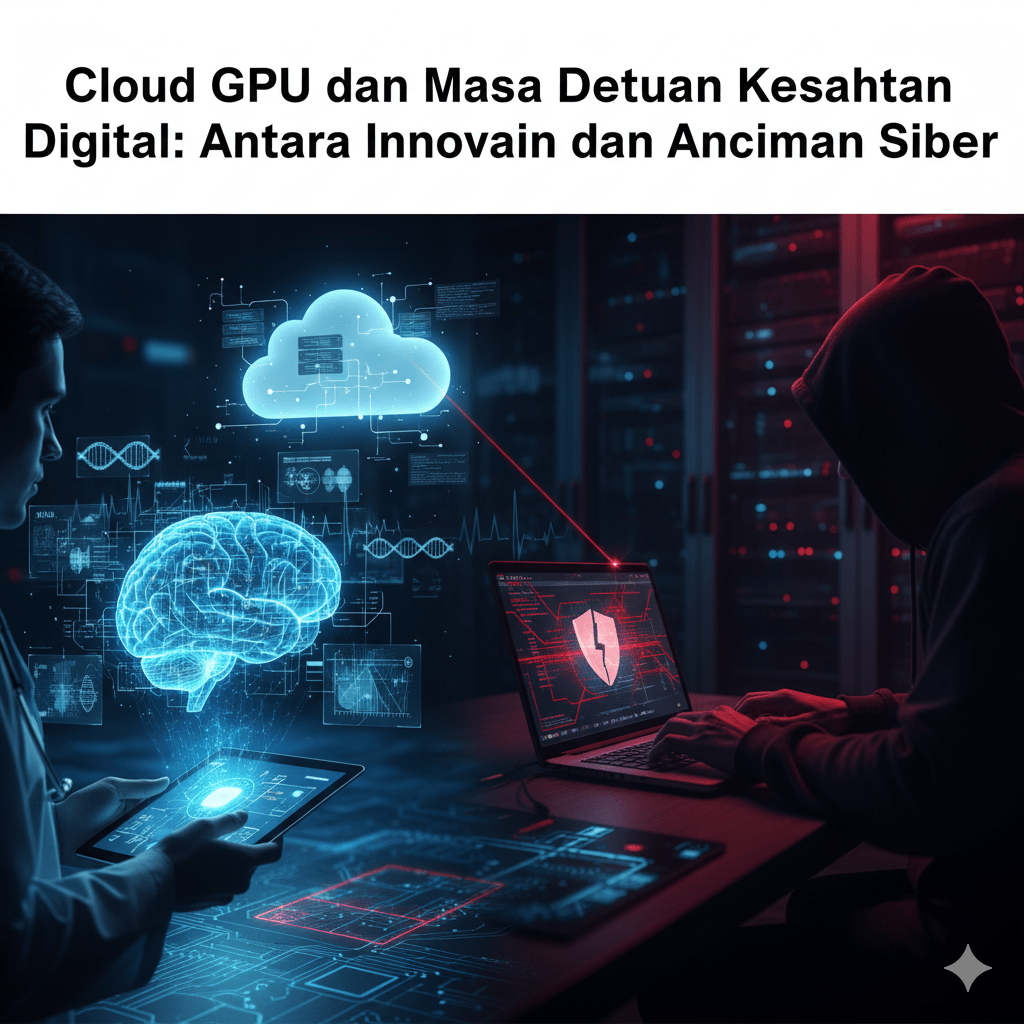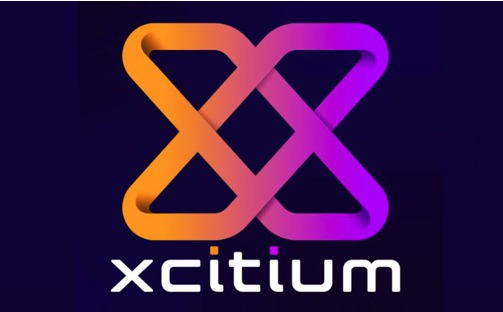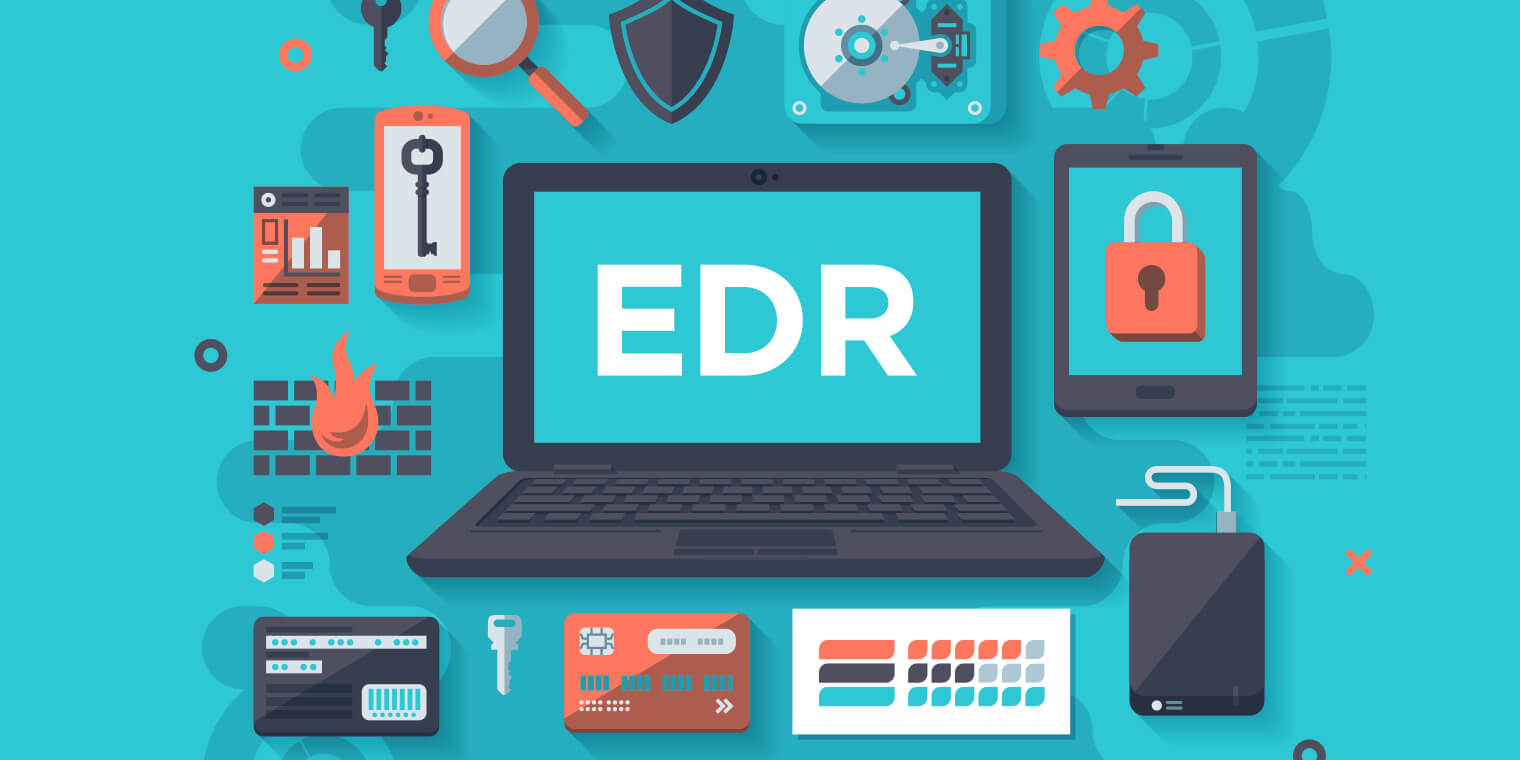Welcome to VelSicuro.com | Cybersecurity Solutions
- hub@velsicuro.co.id
- HEAD OFFICE JHONTAX TB SIMATUPANG, GEDUNG
- Home
- Article
Cloud GPU and the Future of Digital Health: Between Innovation and Cyber Threats

Cloud GPU and the Future of Digital Health: Between Innovation and Cyber Threats
Introduction: Computing Power to Save Lives
Graphics Processing Units (GPUs), initially known as the driving force in the gaming world, are now the backbone of a revolution in the digital health industry. Through Cloud GPU services, hospitals, research institutions, and pharmaceutical companies gain access to the massive computational power needed to process gigantic medical datasets—from high-resolution medical images to complex genomic sequences.
This innovation brings unprecedented advancements in diagnosis, personalized treatment, and drug discovery. However, hand-in-hand with this progress comes an escalating cyber threat, demanding a balance between innovation and security.
🚀 The Innovation Side: How Cloud GPUs are Transforming Medicine
The integration of Cloud GPU offers parallel processing capabilities that transform time constraints into clinical breakthroughs:
-
Fast and Accurate Diagnosis: GPUs are essential for running Deep Learning algorithms that analyze medical images (MRI, CT Scans, X-Rays). AI trained with GPUs can detect tumors, eye diseases, or other anomalies much faster and more accurately than the human eye, reducing false positives and accelerating diagnosis.
-
Accelerated Drug Discovery: Molecular simulations, drug interaction modeling, and virtual screening of thousands of compounds can now be done in hours, not months, thanks to cloud GPU power. This dramatically shortens the drug discovery cycle.
-
Personalized Medicine (Precision Medicine): GPUs analyze vast amounts of patient genomic data to identify specific mutations. This allows doctors to prescribe treatments highly customized to an individual's genetic profile, increasing the effectiveness of therapies for cancer and other genetic diseases.
🛡️ The Cyber Threat: Challenges Behind Sensitive Data
While the benefits are extraordinary, moving highly sensitive patient data (PHI/Health Data Center) to a GPU-based cloud environment creates an extremely attractive target for hackers:
-
High-Value Target: Health data is a highly valuable asset (often more expensive than financial data) on the black market. This data can be used for medical fraud, identity theft, or extortion (ransomware).
-
Third-Party Access Risk: When utilizing Cloud GPU services (from third-party providers), institutions must ensure that data protection and compliance with privacy regulations (such as HIPAA in the US or local standards) are strictly implemented.
-
Vulnerabilities in AI Workloads: AI models running on cloud GPUs are susceptible to data manipulation attacks (Poisoning) or Inference attacks designed to extract sensitive information from the model itself.
Maintaining the Balance: Security as an Accelerator
The future of digital health hinges on our ability to secure the infrastructure that enables innovation. Hospitals and research centers must treat data security (encryption, cloud network segmentation, and multi-factor authentication) not as a hurdle, but as an accelerator of innovation. Only with a robust security foundation can the power of Cloud GPU be fully leveraged to save and enhance human lives.
Popular article
-
 06 March 2023
06 March 2023Comodo Security Solutions Rebrands to Xcitium
-
 21 February 2023
21 February 2023Indihome Attacked by Hackers, Data of 26 Million Customers Leaked
-

-
 04 November 2023
04 November 2023Bagaimana Cara Memilih Solusi EDR yang Tepat Untuk Bisnis Anda?
Categories
Tags
Need Any Technology Solution
Let’s Work Together on Project
Contact Information
- 087890908898
- hub@velsicuro.co.id
-
HEAD OFFICE JHONTAX TB SIMATUPANG,
GEDUNG 18 OFFICE PARK
Jl. TB Simatupang No.Kav. 18, 21th Floor, Kebagusan, Ps. Minggu, Kota Jakarta Selatan, Daerah Khusus Ibukota Jakarta 12520
© 2024 velsicuro.com. All Rights Reserved. Developed by SevenLight.ID


